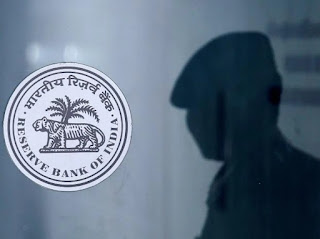Foreign Currency Deposit Schemes require prior clearance from banks.
The Reserve Bank of India (RBI) recently issued a directive requiring banks to get RBI clearance before offering any type of foreign exchange investment plan to any of their clients. Some banks are making promotions on behalf of mutual funds to their consumers without making necessary declarations, according to the RBI.
What is a 'Foreign Currency Deposit Scheme,' and how does it work?
A Foreign Currency Deposit Scheme is a bank-sponsored program in which account users could deposit foreign exchange for future purposes or to hedge against currency swings in the global market. These deposits are generally formed for a longer period and with a set lock-in duration. The sum in the account cannot be withdrawn before the date of maturity. The longer the account is open, the more profit the account holder earns.
What is the RBI's mandate when it comes to Foreign Currency Deposit Schemes?
A fixed deposit in a foreign currency is long-term money invested by an account holder to generate income. While fixed deposits are risk-free, foreign exchange deposits are risky due to the possibility of exchange rate volatility.
In India, certain international banks have started running commercials asking clients for foreign exchange deposits under the Liberalized Remittance Scheme (LRS).
According to the RBI[1,] bank ads will not always provide appropriate transparency about the plans to potential customers. As an outcome, there are concerns about the depositors' interests being compromised.
The RBI feels that there is no supervisory control over international firms that offer foreign exchange deposit schemes in India but do not have a physical influence in the country. As a result, the RBI has decided that any bank that seeks to provide Foreign Exchange Deposit Schemes in India must obtain the relevant permissions.
RBI's Request for Authorizations from Banks Offering Foreign Currency Deposit Schemes
Details about the bank's name, as well as the address of its main office and local offices (if they exist).
Evidence of identification of the major bank competent authorities (and any other agencies, if any) tasked with overseeing the bank's headquarters.
The bank should have a long-term rating from a globally recognized rating organization.
The bank must provide detailed information on the scheme it is promoting.
Process for applying for Foreign Exchange Deposit Schemes
Banks that want to offer Foreign Exchange Deposit Schemes must make an application to the Reserve Bank of India's Department of Banking, Management, and Development's Chief-General Manager.
Any resident person may invest in approved capital account activities under the same programs despite the aforementioned compliance issues. As a result, residents could easily invest in it.
Conclusion
The government's motivation for enacting this rule is to assure that financial institutions and other organizations soliciting foreign exchange deposits from the public make minimum declarations so that depositors' interests are not jeopardized. It's the responsibility of resident depositors to choose the plan with extreme caution and after thoroughly comprehending the types of threats that are linked with the program.
Read More :



Comments
Post a Comment